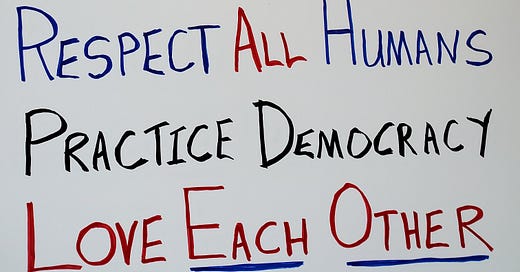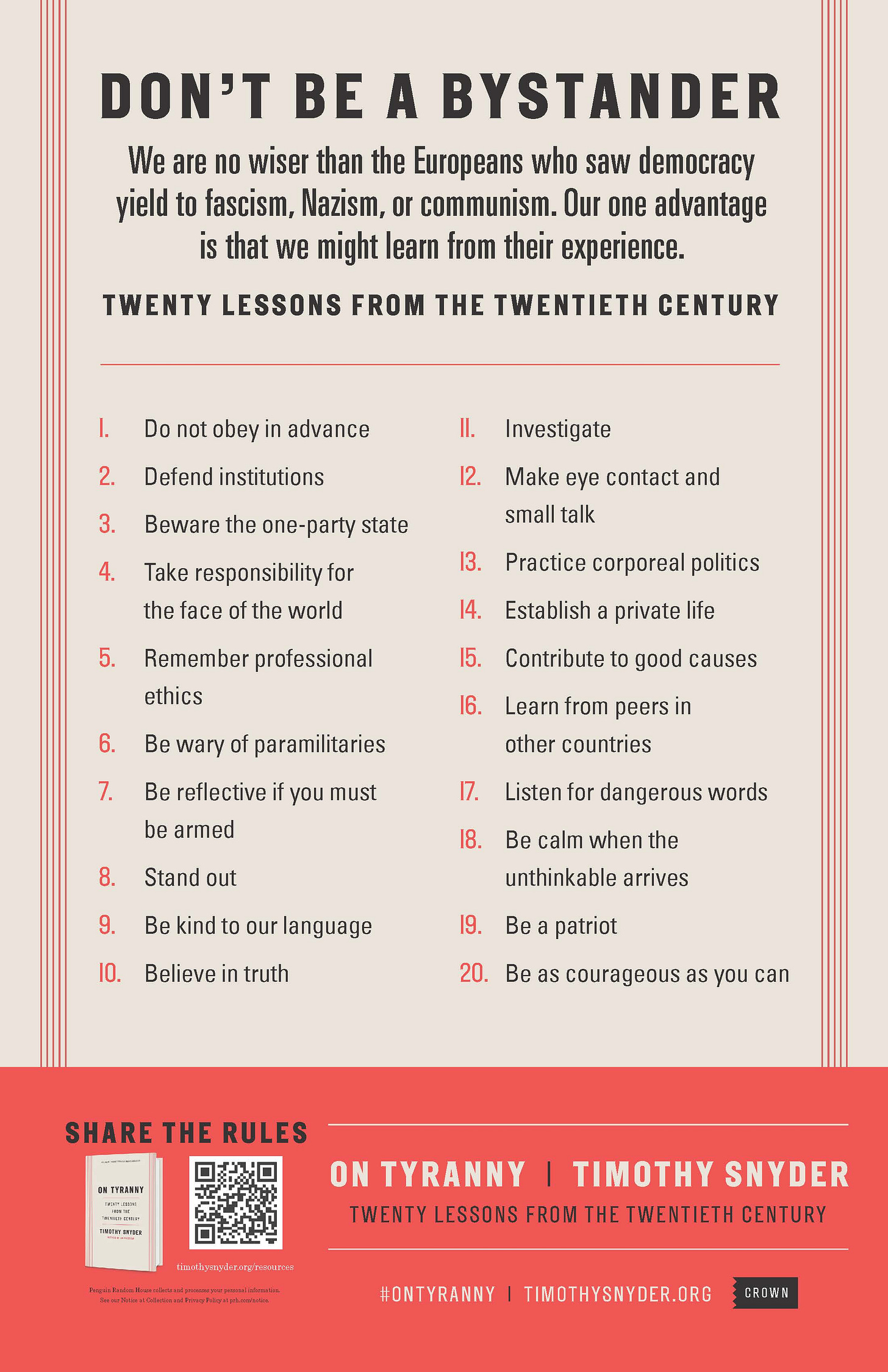This post is in addition to, and not instead of, our regular Wednesday offering. It is offered in print only—not in audio (apologies to all you listeners).
An earlier version of this article appeared on Linkedin on June 10, 2025.
Freedom, Truth, & Shadow in the 21st-Century
I've been fortunate to have friends, colleagues, clients, and teachers who ask a lot of questions. Some of the questions that serve me well are below. I've addressed them to "you" the reader, and encourage you to hear the voice behind each question as curious, compassionate, and playful. If any of the questions feel confrontational, ask yourself why that might be. Be kind to yourself.
Generally Speaking
Who do you think you are? Seriously, how do you identify yourself publicly and privately? Asked differently, what informs your sense of how you’re in relationship with history and current events? Who is it that's in these relationships?
How well do you understand, and how are you in relationship with the history and the current events of the United States of America? Feel free to respond regardless of where on the planet you call home and where you currently live.
Whether you like or dislike the current state of the U.S., who do you believe is to bless and to blame for what you like or dislike? Try not to generalize or insult. Name them and be specific about why you believe they should be blessed or blamed.
What might you be missing? A clever response might be, “If I'm missing it, how would I know?” A conscious response might be, “I don't know, but I work hard every day to grow into an increasingly comprehensive, inclusive, balanced, and complex view of the world in order to minimize what I miss.”
What’s your gut-level response to the idea that “everything is a story”? If your response is that “everything is not a story” or “not everything is a story,” how would it feel to learn that all three of these are stories? Or that some stories are true, and some are not?
More Specifically
Some folks in the U.S. and around the world believe that democratic process and infrastructure are being dismantled in the United States. Other folks believe that democratic process and infrastructure are being cleaned up and restored to the way they used to be and are supposed to be. Both of these are stories. Do you think one of them is true? Which one? Why? Again, be as specific as you can.
How are you in relationship with truth? How hard are you willing to, and do you, work to find it? What is true concerning the 2020 U.S. Presidential Election, the January 6, 2021 coup d’etat, the word “woke,” plastics and pfas, social media, undocumented immigrants, critical race theory, global warming, DEI, wealth inequality, taxes, intersectionality, providing “for the general welfare,” how corporations are persons according to law, and many, many, many other 21st-century issues?
Who would you be without the cultural givens of your birth and earliest years? To whom, where, and what was going on when you were born gave you your earliest views of the world. The extent to which you’ve examined the views you were given in childhood (and yesterday) and intentionally chosen to let go, revise, or embrace them is the extent to which you have them, or they have you.
Thomas Merton wrote that “When you say ‘I think’ it is often not you who think, but ‘they’—it is the anonymous authority of the collectivity speaking through your mask.” How clear are you about what's yours and what belongs to the anonymous authority of the collectivity?
If that's not enough fun, consider these questions both with and without the “What”:
(What) Would you be without the sun?
(What) Would you be without the water cycle?
(What) Would you be without photosynthesis?
(What) Would you be without gravity?
(What) Would you be without the carcinogens in your body?
(What) Would you be without your phone?
(What) Would you be without the government?
(What) Would you be without your stories?
There are more, but I'll spare you.
A Year Is Actually Not Enough...
Whether it’s exploring these questions, improving your jump shot, your golf swing, your piano playing, your understanding of history, your woodworking, your sense of who you are, your sense of who they are, your appreciation of poetry, your ability to code, or....
Whether it’s a good-faith effort to recognize, own, understand, and integrate your shadow, to get in shape, to eat more healthily, to regulate your emotions, to practice patience, to fully recover from whatever it is you’re recovering from, to change careers, or....
A year may seem like a long time, but it’s actually not enough. Mastery takes time. George Leonard wrote that, mastery “is staying on the path.”
Healing America's Narratives: Freedom, Truth, & Shadow in the 21st Century
Beginning October 11, 2025 and running through October 3, 2026 a group of folks who are intrigued by some or all of the questions raised in this writing will convene online for 26 two-hour sessions in order to explore History & Current Events, Development & Intentional Practice, Doing More Good Than Harm in Conversation, Poetry of Witness, and Integration (of all of the above). The details are available here.
This yearlong course will not answer all of our questions, but it will encourage us along the path of intentional practice. It’s not for everyone, but it may be for anyone who would read this article to the end. The invitation is to come together, to live in truth, to care for ourselves, each other, and the world at large, and to do the work required for our continuing growth. The voices that inform the course are many, and they hail from diverse time periods, disciplines, and worldviews.
If you'd like to have a conversation about this course (or related issues), let me know. If we already know each other, shoot me an email or a message on this platform or some other way. If we don't know each other yet, get in touch and we’ll set up some time to chat.
If you know someone, or many some-many, who might be interested in learning about this yearlong course (or the Healing America’s Narratives Substack), please share it.
I’d love to have you join us.
Gratefully,
Reggie





